Discover The Indicator from Planet Money
The Indicator from Planet Money

The Indicator from Planet Money
Author: NPR
Subscribed: 62,511Played: 8,596,178Subscribe
Share
© Copyright 2015-2021 NPR - For Personal Use Only
Description
A bite-sized show about big ideas. From the people who make Planet Money, The Indicator helps you make sense of what's happening in today's economy. It's a quick hit of insight into money, work, and business. Monday through Friday, in 10 minutes or less.
1732 Episodes
Reverse
President Trump has said he’d try to get more Argentine beef into the U.S. So who would actually do the buying? That’s a general theme with a lot of these trade deals — big numbers but vague details. When China says it’ll buy more soybeans, is it the government or companies that does the buying? When South Korea promises to invest in American shipyards, who’s actually doing that? Today on the show, we dig into two questions from listeners and hear directly from an Argentine butcher. Related episodes: Why beef prices are so highHow the South is trying to win the EV race For sponsor-free episodes of The Indicator from Planet Money, subscribe to Planet Money+ via Apple Podcasts or at plus.npr.org. Fact-checking by Sierra Juarez. Music by Drop Electric. Find us: TikTok, Instagram, Facebook, Newsletter. Learn more about sponsor message choices: podcastchoices.com/adchoicesNPR Privacy Policy
It’s … Indicators of the Week! Our weekly look at some of the most fascinating economic numbers from the news. On today’s episode: the effects of pay transparency, Meta’s big win, and freaky flies and beef. Related episodes: Are we entering a new dawn for antitrust enforcement? Why beef prices are so high For sponsor-free episodes of The Indicator from Planet Money, subscribe to Planet Money+ via Apple Podcasts or at plus.npr.org. Fact-checking by Sierra Juarez. Music by Drop Electric. Find us: TikTok, Instagram, Facebook, Newsletter. Learn more about sponsor message choices: podcastchoices.com/adchoicesNPR Privacy Policy
When people lose their homes to wildfire, hurricanes or flooding, they're eager to rebuild. But scammers are also ready to take advantage. On today’s show, the lucrative business of contractor fraud and advice on how to avoid them. Related episodes:An indicator lost: Big disaster costs When insurers can’t get insurance Selling safety in the fight against wildfires For sponsor-free episodes of The Indicator from Planet Money, subscribe to Planet Money+ via Apple Podcasts or at plus.npr.org. Fact-checking by Corey Bridges. Music by Drop Electric. Find us: TikTok, Instagram, Facebook, Newsletter. Learn more about sponsor message choices: podcastchoices.com/adchoicesNPR Privacy Policy
Foreign automakers already have huge assembly plants in the U.S., but lots of parts and materials come from overseas. To avoid costly tariffs, they gotta buy American. But … How does one meet those suppliers? How do you build a new relationship with them?The answer: Speed dating. Related episodes: The old trade war that brought foreign carmakers to the U.S.Tariffs: What are they good for?For sponsor-free episodes of The Indicator from Planet Money, subscribe to Planet Money+ via Apple Podcasts or at plus.npr.org. Fact-checking by Tyler Jones. Music by Drop Electric. Find us: TikTok, Instagram, Facebook, Newsletter. Learn more about sponsor message choices: podcastchoices.com/adchoicesNPR Privacy Policy
The U.S. labor market is stagnant right now, with little hiring and lots of people holding onto their jobs for dear life. In Denmark, there’s a different kind of labor system where it’s easy for employers to hire and fire, but at the same time people have a strong safety net in-between jobs. Today on the show, we learn how “flexicurity” works through the story of a Danish woman who left her job, and we ask how the model could work in the U.S. Related episodes:
Why do we live in unusually innovative times?How Marxism went from philosophy to cudgelOzempic's biggest side effect: Turning Denmark into a 'pharmastate'? For sponsor-free episodes of The Indicator from Planet Money, subscribe to Planet Money+ via Apple Podcasts or at plus.npr.org. Fact-checking by Tyler Jones. Translation from Jasmine Lolila. Music by Drop Electric. Find us: TikTok, Instagram, Facebook, Newsletter. Learn more about sponsor message choices: podcastchoices.com/adchoicesNPR Privacy Policy
Ever put in the winning bid for something on an auction site only to realize you significantly overpaid? Yeah, there’s a phrase for that. On today’s show: the winner’s curse.Richard Thaler’s new book with Alex O. Imas is The Winner’s Curse: Behavioral Economics Anomalies, Then and Now.Read Planet Money’s newsletter on the winner’s curse. For sponsor-free episodes of The Indicator from Planet Money, subscribe to Planet Money+ via Apple Podcasts or at plus.npr.org. Fact-checking by Sierra Juarez. Music by Drop Electric. Find us: TikTok, Instagram, Facebook, Newsletter. Learn more about sponsor message choices: podcastchoices.com/adchoicesNPR Privacy Policy
It’s … Indicators of the Week! We look at some of the most fascinating economic numbers from the news and bring them to you.On today’s episode: The cost of living is outstripping wage growth for most of us, the math behind the Trump administration’s proposed 50-year mortgages, and how we’re just giving Uber and Lyft free money. Related episodes: Trump's plans for the housing market The Money Illusion: Have Americans really gotten a raise? For sponsor-free episodes of The Indicator from Planet Money, subscribe to Planet Money+ via Apple Podcasts or at plus.npr.org. Fact-checking by Sierra Juarez. Music by Drop Electric. Find us: TikTok, Instagram, Facebook, Newsletter. Learn more about sponsor message choices: podcastchoices.com/adchoicesNPR Privacy Policy
The U.S. is committed to bailing out Argentina to the tune of $20 billion using a little known mechanism called the Exchange Stabilization Fund. On today’s show, what is this fund, why was it created and does Argentina have any hope of paying it back? Related episodes: Dollarizing Argentina For sponsor-free episodes of The Indicator from Planet Money, subscribe to Planet Money+ via Apple Podcasts or at plus.npr.org. Fact-checking by Sierra Juarez. Music by Drop Electric. Find us: TikTok, Instagram, Facebook, Newsletter. Learn more about sponsor message choices: podcastchoices.com/adchoicesNPR Privacy Policy
The U.S. Supreme Court may soon rule on President Trump’s favorite tariff law. It could render them moot, but that doesn’t mean the end of tariffs. On today’s show, we explain the president’s back-up options for imposing tariffs.Related episodes: Are Trump’s tariffs legal? Worst. Tariffs. Ever. Three ways companies are getting around tariffs For sponsor-free episodes of The Indicator from Planet Money, subscribe to Planet Money+ via Apple Podcasts or at plus.npr.org. Fact-checking by Sierra Juarez. Music by Drop Electric. Find us: TikTok, Instagram, Facebook, Newsletter. Learn more about sponsor message choices: podcastchoices.com/adchoicesNPR Privacy Policy
The World Cup is coming up, and it’s going to cost a pretty penny if you are hoping to attend. Today on the show, we talk to NPR Senior Business editor and World Cup superfan about why the 2026 World Cup will likely be the most expensive in history and why even finding a ticket is more difficult. Related episodes: Peacock, potassium and other Paris Olympics IndicatorsWhy the Olympics cost so muchYou can't spell Olympics without IPFor sponsor-free episodes of The Indicator from Planet Money, subscribe to Planet Money+ via Apple Podcasts or at plus.npr.org. Fact-checking by Sierra Juarez. Music by Drop Electric. Find us: TikTok, Instagram, Facebook, Newsletter. Learn more about sponsor message choices: podcastchoices.com/adchoicesNPR Privacy Policy
France has one of the most generous pension systems in the world. But several governments there have collapsed over questions about how the government will fund it. All over the world, aging populations are forcing governments to rethink their assumptions. Today on the show, what France’s political fiascos teach all of us about the economics of an aging population, and what a retirement expert’s ideal retirement system might look like.Mercer CFA Institute Global Pension Index 2025Related episodes: What would it take to fix retirement? What does the next era of Social Security look like? When Retirement Advice Goes Viral For sponsor-free episodes of The Indicator from Planet Money, subscribe to Planet Money+ via Apple Podcasts or at plus.npr.org. Fact-checking by Sierra Juarez. Music by Drop Electric. Find us: TikTok, Instagram, Facebook, Newsletter. Learn more about sponsor message choices: podcastchoices.com/adchoicesNPR Privacy Policy
There’s one job that gets all the attention during a government shutdown: air traffic controllers. Today on the show, we spotlight why this job has taken on outsize political influence and one controller’s experience during the longest shutdown on record. For sponsor-free episodes of The Indicator from Planet Money, subscribe to Planet Money+ via Apple Podcasts or at plus.npr.org. Fact-checking by Tyler Jones. Music by Drop Electric. Find us: TikTok, Instagram, Facebook, Newsletter. Learn more about sponsor message choices: podcastchoices.com/adchoicesNPR Privacy Policy
The “Shiller PE Ratio” is at its highest level since November of 1999. That was at the peak of the online gold rush right before the dot com bubble burst in 2000. Today on the show, we learn what the Shiller PE Ratio is, how it works and whether we should be worried that it’s relatively high right now. You can find John Campbell's book here: Fixed: Why Personal Finance is Broken and How to Make It Work for EveryoneRelated episodes: What’s a Bubble? Zombie 2nd mortgages are coming to life, threatening thousands of Americans' homes For sponsor-free episodes of The Indicator from Planet Money, subscribe to Planet Money+ via Apple Podcasts or at plus.npr.org. Fact-checking by Tyler Jones. Music by Drop Electric. Find us: TikTok, Instagram, Facebook, Newsletter. Learn more about sponsor message choices: podcastchoices.com/adchoicesNPR Privacy Policy
Russia’s been subject to more than 5,000 sanctions since its invasion of Ukraine. Yet many purported allies of Ukraine are still getting Russian oil — directly or indirectly. On today’s show, how governments are straddling the fence and skirting their own sanctions. Related episodes: How the ‘shadow fleet’ helps Russia skirt sanctions For sponsor-free episodes of The Indicator from Planet Money, subscribe to Planet Money+ via Apple Podcasts or at plus.npr.org. Fact-checking by Sierra Juarez. Music by Drop Electric. Find us: TikTok, Instagram, Facebook, Newsletter. Learn more about sponsor message choices: podcastchoices.com/adchoicesNPR Privacy Policy
Last month, the Trump administration asked Apple to remove an app from its App Store that crowdsourced sightings of Immigration and Customs Enforcement agents. Today on the show, we explain what an ongoing legal battle involving the developer of the video game Fortnite has to do with Apple’s latest move to comply with the Trump administration.Related episodes: How Fortnite brought Google to its kneesThe DOJ's case against AppleApple v EverybodyFor sponsor-free episodes of The Indicator from Planet Money, subscribe to Planet Money+ via Apple Podcasts or at plus.npr.org. Fact-checking by Sierra Juarez. Music by Drop Electric. Find us: TikTok, Instagram, Facebook, Newsletter.Learn more about sponsor message choices: podcastchoices.com/adchoicesNPR Privacy Policy
Companies are starting to use AI to interview potential employees. Sound creepy? Well, a new study suggests it might not be all bad.. Today on the show, we look at why a job interview with AI might be preferable to one with a human. ? And Adrian gets grilled by an AI job recruiter named “Anna.” Related episodes: AI creates, transforms and destroys … jobs Fighting AI with AI For sponsor-free episodes of The Indicator from Planet Money, subscribe to Planet Money+ via Apple Podcasts or at plus.npr.org. Fact-checking by Sierra Juarez. Music by Drop Electric. Find us: TikTok, Instagram, Facebook, Newsletter. Learn more about sponsor message choices: podcastchoices.com/adchoicesNPR Privacy Policy
It’s … Indicators of the…Eek! (Indicators of the Week.) Our regular look at some of the most fascinating economic numbers from the news. On today’s episode: How cell phone bans in schools affect grades, white collar workers get the axe, and AHHH! Halloween candy inflation! Related episodes: Are you afraid of inflation? A finance fright fest For sponsor-free episodes of The Indicator from Planet Money, subscribe to Planet Money+ via Apple Podcasts or at plus.npr.org. Fact-checking by Julia Ritchey and Corey Bridges. Music by Drop Electric. Find us: TikTok, Instagram, Facebook, Newsletter. Learn more about sponsor message choices: podcastchoices.com/adchoicesNPR Privacy Policy
China and India have a long, complicated history. Just a few years ago, there was a spate of armed skirmishes between the two nations. And yet, there are signs of warming relations amidst President Trump’s ongoing trade war. Today on the show, is that trade war pushing India toward China? And what could happen if two of the world’s largest economies come together? Related episodes: China’s trade war perspective What might save China's economy Is the US pushing countries towards China?
For sponsor-free episodes of The Indicator from Planet Money, subscribe to Planet Money+ via Apple Podcasts or at plus.npr.org. Fact-checking by Sierra Juarez. Music by Drop Electric. Find us: TikTok, Instagram, Facebook, Newsletter. Learn more about sponsor message choices: podcastchoices.com/adchoicesNPR Privacy Policy
Health insurance subsidies are at the center of the current government shutdown. Democrats want to extend some expiring Affordable Care Act/Obamacare subsidies. Obamacare has weathered several political storms since its inception, but how will it fare without those subsidies? Today on the show, death spirals and the future of Obamacare.Related episodes: The hidden costs of healthcare churn How doctors helped tank universal healthcare For sponsor-free episodes of The Indicator from Planet Money, subscribe to Planet Money+ via Apple Podcasts or at plus.npr.org. Fact-checking by Sierra Juarez. Music by Drop Electric. Find us: TikTok, Instagram, Facebook, Newsletter. Learn more about sponsor message choices: podcastchoices.com/adchoicesNPR Privacy Policy
Republican politicians like to use the term ‘Marxist’ to criticize Democrats. Lately, they’ve dubbed New York City mayoral candidate a ‘Marxist’ despite him identifying himself as a democratic socialist. Today on the show, we dig into what ‘Marxism, as an economic term,’ actually means.Related episodes: Socialism 101Even the facts are polarizedFor sponsor-free episodes of The Indicator from Planet Money, subscribe to Planet Money+ via Apple Podcasts or at plus.npr.org. Fact-checking by Sierra Juarez. Music by Drop Electric. Find us: TikTok, Instagram, Facebook, Newsletter. Learn more about sponsor message choices: podcastchoices.com/adchoicesNPR Privacy Policy






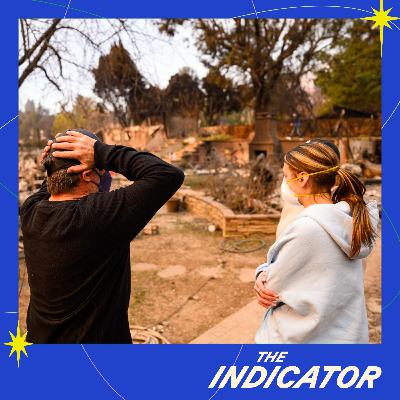
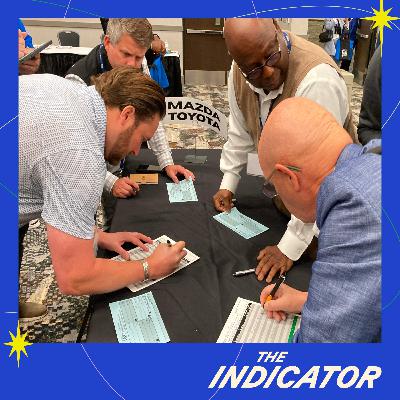


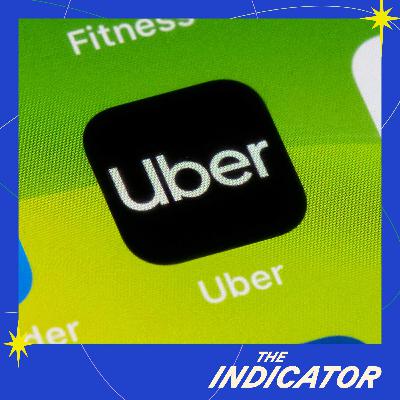
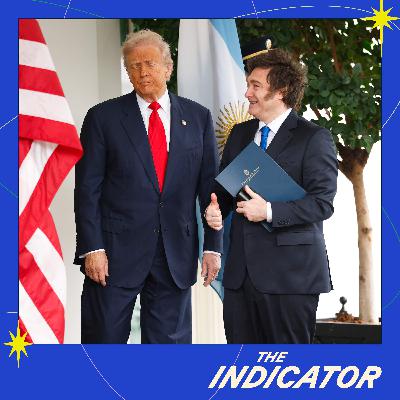
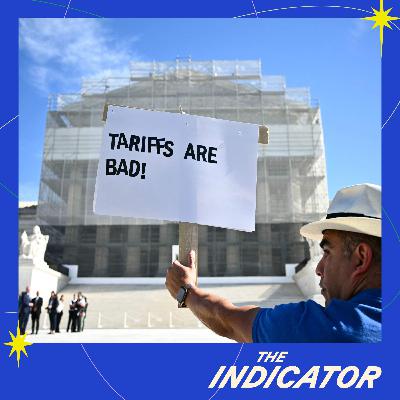







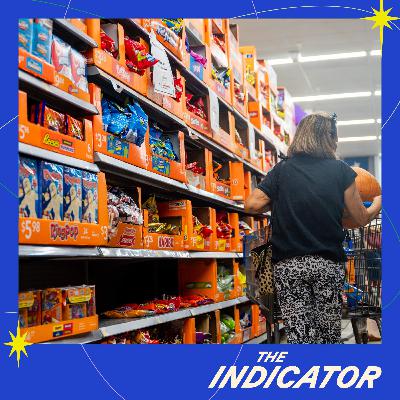
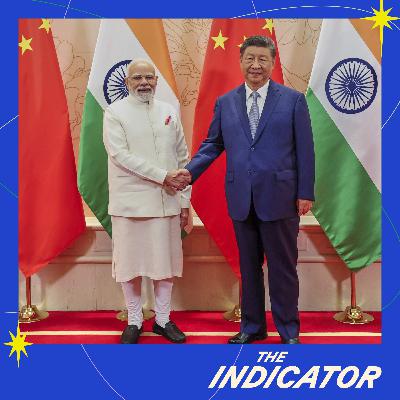

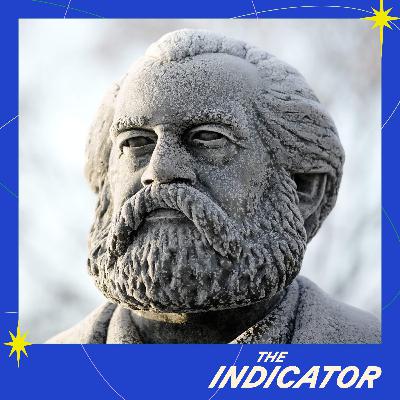



💡
As we know, the world becomes globally and there are huge ways of earning. Visit this website https://apkkit.net/ where you'll find plenty of options for easy earning from your phone.
🖼️
🐟
a bit too woke to be considered journalism
Hahaha they skirted around the elephant so much
Lots of data for comparison in this episode! Increased used car costs = ☹️. I love my current vehicle - as a model that is no longer produced, I hope it goes strong for more years on several levels! 🚗
"A guy who trusts his gut, knows very little, studies not at all, and is adverse to taking advice from almost everyone." 👀👀👀
9:28.. what is.she scared of? really!!?!?
please stop calling it liberation day. if we have to call it by a name then Doofus Day would be more accurate.
🚗
1. People have short attention span, and 2. Random acts of violence, while they do happen, are rare as a regular occurrence in the same tourist destination.
Very good points about why there aren't water pipelines across the entire country to easily funnel from water-rich locations. A good example of the benefits and challenges of having many small systems rather than a monopoly. ⛲
Video games have become more accessible than ever, thanks to advancements in technology, inclusive designs, and widespread internet connectivity. From mobile gaming apps to sophisticated console platforms, the industry caters to players of all ages and abilities. Accessibility features such as customizable controls, text-to-speech options, and visual aids ensure that gaming can be enjoyed by everyone, including those with disabilities. Moreover, websites like https://mtcheck.org/ provide valuable resources and insights for players, helping them make informed decisions about their gaming preferences and experiences. This evolution underscores the growing emphasis on inclusivity and the importance of bridging the gap for all types of gamers worldwide.
Cost transparency is important, and the funeral industry should do better. Similarly, reports are coming out this week of many hospitals that are failing to provide clear costs. Why can't we at least know the financial ramifications of literal life and death experiences?
Financial literacy - understanding both macro and micro processes - is rare, so teaching kids early will hopefully benefit those individuals and eventually the communities where they live.
Who is clamoring for Fire Festival 2? 🤨
Good for FIU and Pitbull- hope he gets to do something extra fun with his 10 days/year!
Malcolm Gladwell wrote about the advantages of being the older individuals in a cohort and how they are often more successful. Even so, "reclassing" is an interesting rebrand of "being held back" and if the ONLY reason it's happening is to give a false athletic advantage that seems really short-sighted.
More than 10 minutes into an 11 minute. podcasts we finally get to "in other studies the results are mixed." indeed.